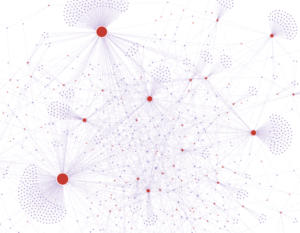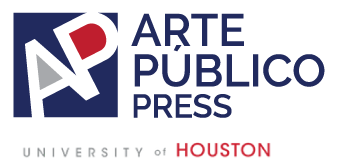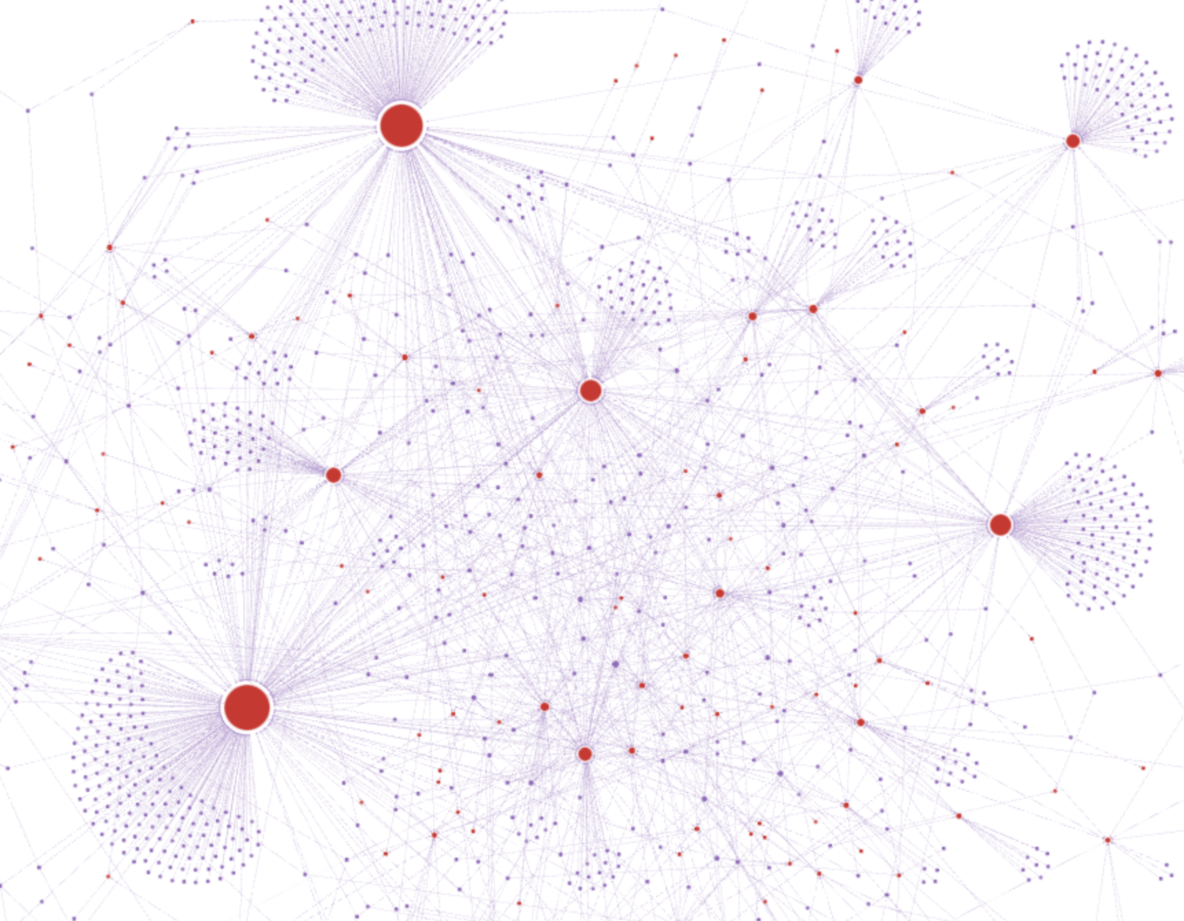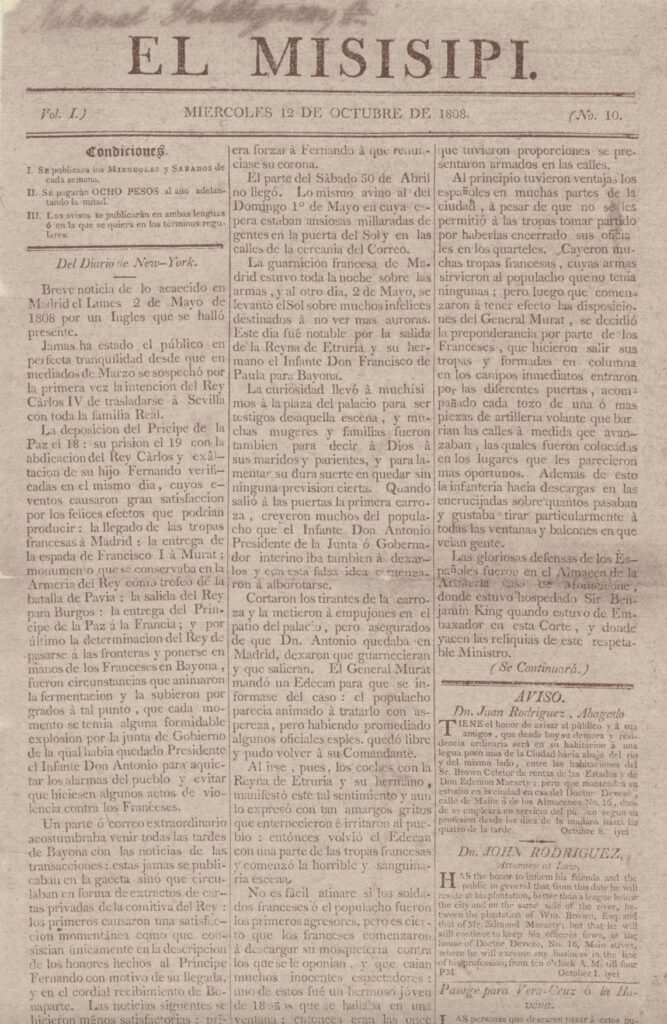Recovering the US Hispanic Literary Heritage’s US Latino Digital Humanities program (USLDH) announces the release of “Printed Pathways in US Latino Periodicals.” This digital project is a comprehensive authority list that contains robust bibliographic information about Latina/o authors and poets who published in US Latino periodicals. With over 4,800 records, “Printed Pathways” makes visible the complex network of Latina/o authors–who published where and who was mentioned in which newspapers. The records include data such as author name, nationality, gender, newspaper title and place of publication, genre, pseudonym and more.
Over the past 30 years, Recovery scholars have contributed to this growing bibliography. The program’s initial deliverables included, among others, the creation of a comprehensive bibliography and index of periodicals. Thus, the records visualized in “Printed Pathways” is the culmination of decades of research by Recovery scholars. Gabriela Baeza Ventura (co-founder of USLDH, Executive Editor of Arte Público Press, and Associate Professor of Hispanic Literature in the Hispanic Studies at the University of Houston) notes: “With this visualization, you can see the range and reach of the Latina/o written activity that enacts a powerful counter narrative to any belief that our community was inactive intellectually, that they did not write or publish. In fact, many were not only writing in Spanish, they wrote in English and French for Spanish- and English-language newspapers. Lastly, Printed Pathways clearly demonstrates the vibrant intellectual activity that is happening in the US with Spanish-speaking writers who are working in tandem with their counterparts; many establishing long lasting collaborations as is the case of Maria Cristina Mena with DH Lawrence. So we should now revisit the American/US historical and literary discourse that have left these voices out and work at correcting those records.”

Graduate Research Assistant, Isis Campos, tested various platforms for this network analysis before selecting Graph Commons, an online platform for mapping, analyzing and publishing data-networks. This allows searches on the digital project and users can zoom in and out to explore the network. Purple dots represent authors, while red dots represent the periodicals. Through this project, Campos had the opportunity to experiment with data visualization: “Working on this project allowed me to strengthen my abilities as a digital humanist. I was given the opportunity to explore and learn through the process. Not only did I grow as a scholar, but I also immersed myself in the history of my community.”
Using the data from the record sets, Recovery Research Assistants created the Twitter bot, Filling the Gaps (@Fillingthe_gaps), which regularly posts information about Latina/o authors and the newspapers in which they published: https://twitter.com/fillingthe_gaps.
Explore the pathways between US Latina/o authors by visiting the “Printed Pathways” digital project here.
The creation of the digital project, “Printed Pathways” was made possible through the USLDH program. In 2019, The Andrew W. Mellon Foundation awarded UH a grant to establish a first-of-its-kind US Latino Digital Humanities Program in the College of Liberal Arts and Social Sciences. The program gives scholars expanded access to a vast collection of written materials produced by Latinas/os and archived by the Recovery program and Arte Público Press, the nation’s largest publisher of contemporary and recovered literature by Hispanic authors from the United States.
Printed Pathways Research and Data Team
Gabriela Baeza Ventura, PhD: research, data, project ideation
Carolina Villarroel, PhD, CA: research, data, project ideation
Isis Campos: digital platform research, project management
Roselia Bañuelos: data entry
María Borjas: data entry
Tanya Campos: data entry
Melanyn Cabrera (SER Bank of America Intern): data entry
Emily Deleon(SER Bank of America Intern): data entry
Sonia Del Hierro: data entry
Sylvia Fernández: data entry
Mercedes Fernández Asenjo: research
Victoria Moreno: data entry
Elías David Navarro: data entry
Jose-Luis Quintero: data entry
María Sánchez Carbajo: data entry
USLDH Team
Gabriela Baeza Ventura, PhD (Co-Founder)
Carolina Villarroel, PhD, CA (Co-Founder)
Lorena Gauthereau, PhD (Digital Programs Manager)
Linda García Merchant, PhD (USLDH Postdoctoral Fellow)
Visit our USLDH projects page to see a listing of our current and forthcoming projects.
To learn more about USLDH, please visit: http://artepublicopress.com/digital-humanities/
Further reading
Baeza Ventura, Gabriela, Nicolás Kanellos and Carolina Villarroel. “Twenty-Five Years of Recovering Our Written Legacy” in Writing/Righting History: Twenty-Five Years of Recovering the US Hispanic Literary Heritage. Edited by Antonia Castañeda and Clara Lomas. Houston, Arte Público Press, 2020, 5-18.
Baeza Ventura, Gabriela, Lorena Gauthereau and Carolina Villarroel, “Recovering the US Hispanic Literary Heritage: A Case Study on US Latina/o Archives and Digital Humanities.” Preservation, Digital Technology & Culture, 2019, 48.1, 17-27.
Kanellos, Nicolás and Helvetia Martell. Hispanic Periodicals in the United States, Origins to 1960: A Brief History and Comprehensive Bibliography. Arte Público Press, 2000.






